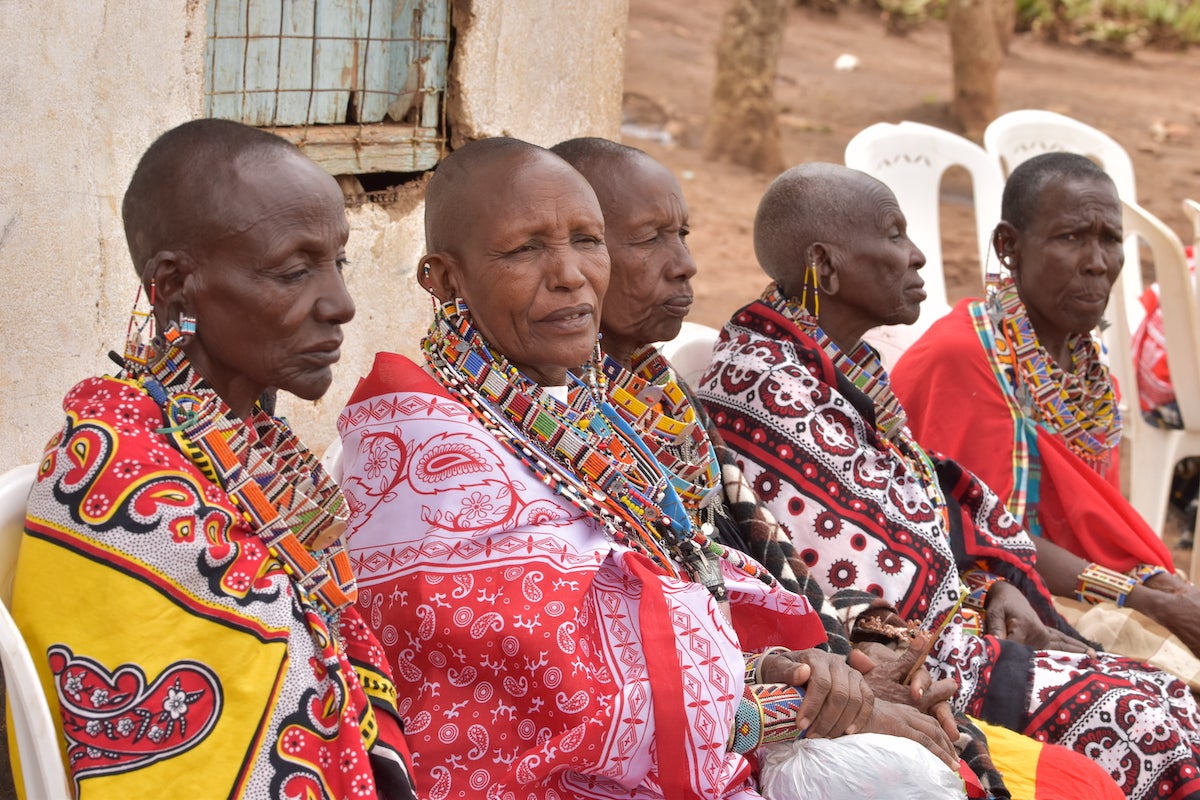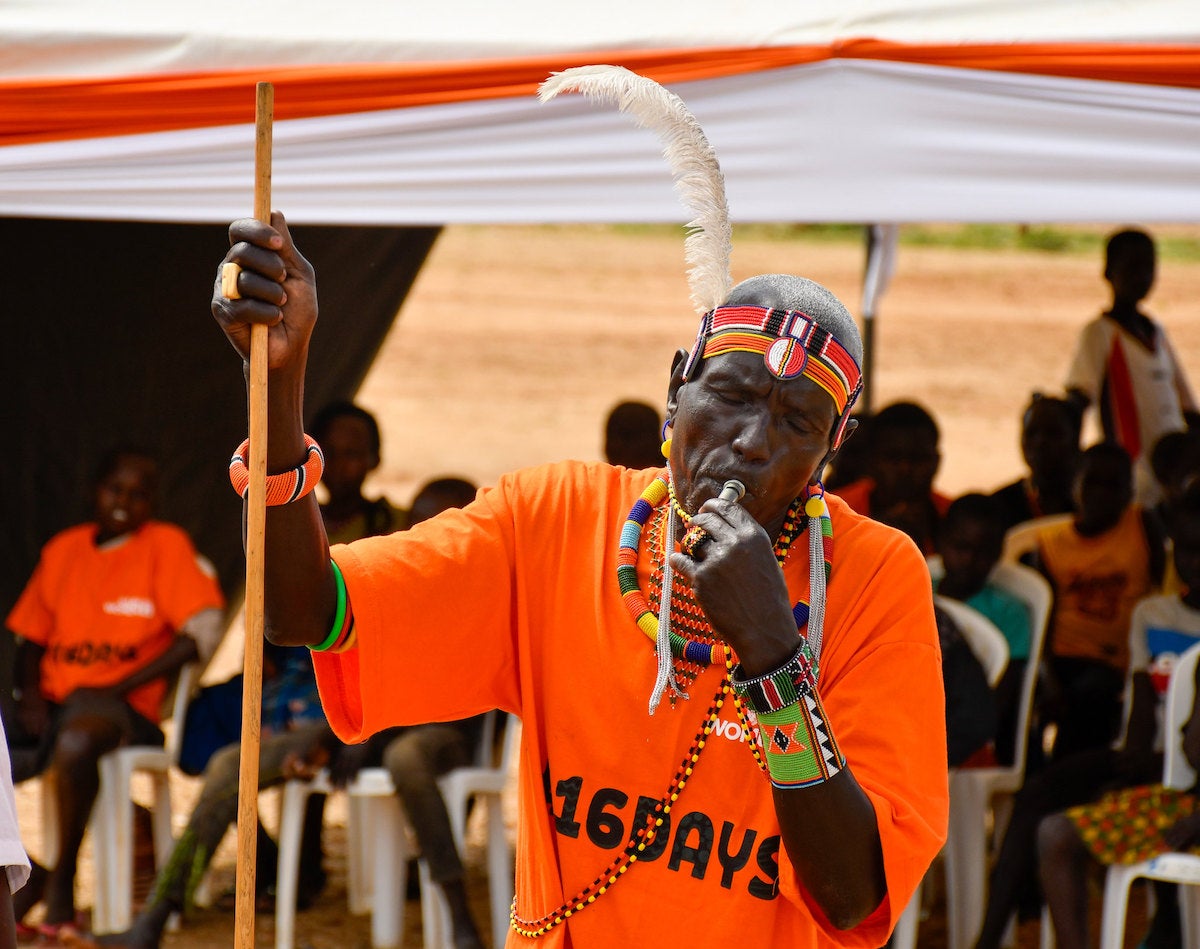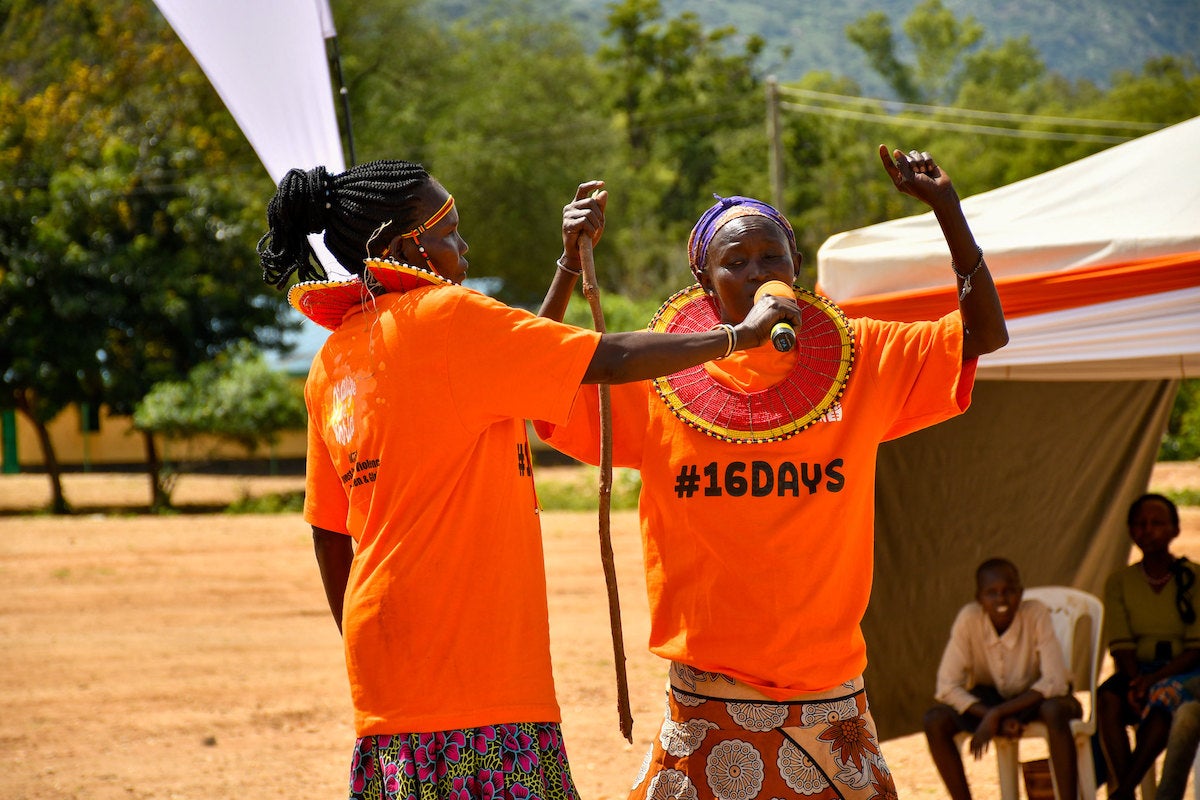Kenya’s stand against Gender-Based Violence: Engaging elders to eradicate harmful practices
Date:

During the 16 Days of Activism against Gender-Based Violence, Generation Equality is celebrating commitment makers that are driving action to end gender-based violence. Kenya’s story of cultural transformation takes center stage, showing how the country is tackling one of its most deep-rooted challenges: female genital mutilation (FGM). At the heart of this movement are Kenya’s councils of elders, respected community leaders whose voices hold immense influence and whose commitment to ending FGM is transforming the lives of women and girls across the country.
In regions where FGM has been a longstanding tradition, the words and actions of elder’s shape community values. As a co-leader of the Global Generation Equality Gender-Based Violence (GBV) Action Coalition, Kenya has focused on working together with these cultural gatekeepers to shift attitudes towards FGM. FGM prevalence in Kenya has significantly decreased from 32% in 2003 to 15% in 2022, according to the Kenya Demographic and Health Survey (KDHS), reflecting the impact of educational and advocacy efforts. Despite this progress, FGM remains prevalent in certain regions and communities where FGM has long been tied to rites of passage.
Through open dialogue and education, Kenya’s Generation Equality leaders have engaged councils of elders across various communities, from Samburu to Bungoma, to lead their communities in eradicating this harmful practice.
In the Samburu County, community elders, who are influential cultural custodians, have openly committed to ending FGM, signing a formal declaration to end FGM, a powerful public commitment to protect future generations of girls. This declaration, backed by Kenya’s government and local partners, it’s a historic pledge by influential elders to reshape cultural norms that have held for generations. This declaration is inspiring similar commitments across the country. In the Bungoma County, the council of elders is now collaborating to sign their own commitment, marking another milestone in Kenya’s path to safeguard women and girls from violence.

By engaging community leaders across multiple counties, Kenya is fostering peer-to-peer learning among councils of elders from both FGM-practicing and non-practicing regions. Through these exchanges, elders witness firsthand the positive impact of abandoning FGM and learn from communities that have already embraced change. These dialogues provide a safe space for elders from resistant areas to reflect on long-held traditions, question harmful practices, and explore new ways to honour cultural values that prioritize the well-being and dignity of all community members.
Kenya’s focus on male engagement has also proven instrumental. Through outreach and awareness campaigns targeting men, FGM is gradually being eliminated. These efforts have led to influential dialogues with the Maasai Morans, resulting in a cultural re-evaluation of harmful practices in that community.
The involvement of cultural leaders in Kenya shows that the journey to end GBV is not merely a legal or policy battle, but a deeply cultural practice. With every council that stands against FGM, Kenya moves closer to a future where girls can grow up safe, valued, and free from violence.
Kenya’s Generation Equality Commitments: Ending GBV and FGM by 2026

Eradicating harmful practices and ending GBV is part of Kenya’s broader strategy to scale up gender equality in the country. Kenya is co-leading the Generation Equality Forum's GBV Action Coalition, committing to bold action in the fight against GBV and FGM by 2026. As a Generation Equality Commitment Maker, Kenya made 12 concrete commitments to create a safer future for women and girls. These commitments cover key areas such as leadership, accountability, laws, data, and service delivery.
Among the most impactful commitments, Kenya has pledged to fully implement GBV laws, invest up to USD 50 million in GBV prevention and response by 2026, and ratify ILO Convention 190 to eliminate GBV in the workplace. The country also aims to integrate GBV services into Universal Health Coverage (UHC) and establish GBV recovery centers in every county.
These commitments are underpinned by a strong focus on financing, partnerships with civil society, the private sector, and gender-focused organizations, and data-driven solutions to monitor progress.
As the world observes the 16 Days of Activism, Kenya’s commitment to ending gender-based violence through male engagement, its partnerships with councils of elders, and its support for FGM survivors serve as a powerful reminder: when communities unite to protect each other, profound cultural shifts are possible. Through strong leadership and commitment to Generation Equality, Kenya is paving the way to replace harmful practices with traditions that uplift and empower women and girls across the country.